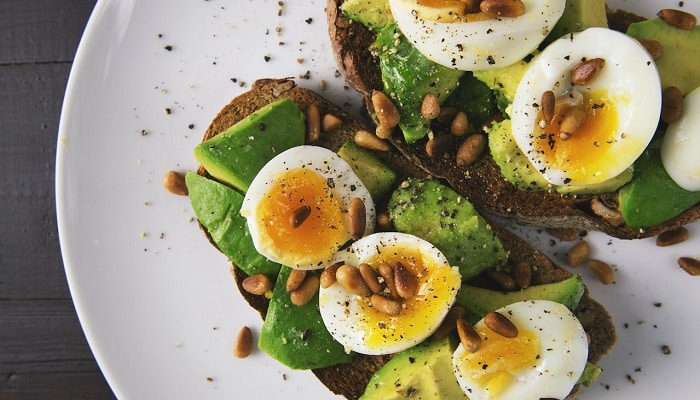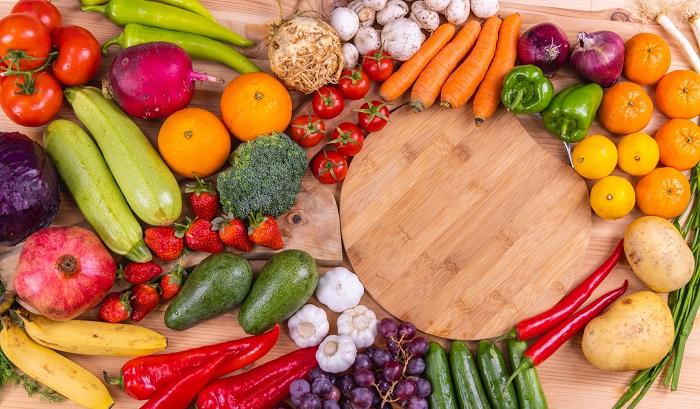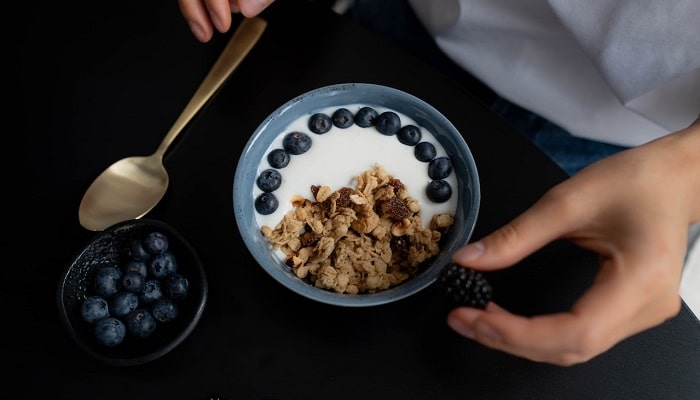Pregnancy is an exciting time. From picking out your baby’s name to preparing the nursery, there is a great deal of joy and bliss during those 9 months. But there is also a lot to learn and many things to keep in mind during pregnancy, including what to eat.
Nutrition is a vital part of a fetus’s development, and what you eat plays a huge role in your baby’s overall health, not to mention your own. Eating enough food and getting the right nutrients can seem like a challenge, but it’s an important one to take on.
This article will provide an overview of the importance of nutrition during pregnancy. We’ll also look at how many extra calories you need per trimester, and the best foods for pregnancy.
Why is nutrition important during pregnancy?
When you’re pregnant, your body goes through massive changes to help your baby grow properly. These changes require important nutrients and plenty of calories.
Many nutrients have been researched for their importance during pregnancy. While some nutrients are needed to regulate DNA and cell growth, others are needed for organ growth, brain development, and protection from gene mutations in your growing fetus.1
Key micronutrients for pregnancy
People who are pregnant need at least 600 micrograms (mcg) per day of folic acid, a key nutrient that helps prevent birth defects, including spina bifida. Folic acid also supports the overall growth and development of your baby.2
But folic acid isn’t the only important nutrient. Some other important micronutrients during pregnancy include:
- Iron – A key nutrient for fetal development that also helps your baby get plenty of oxygen. The recommended daily intake during pregnancy is 27 milligrams (mg).
- Vitamin C – Important for a healthy immune system and strong bones and muscles. The recommended daily intake during pregnancy is 80-85 mg.
- Choline – Another vital nutrient for normal brain and spine growth. The recommended daily intake during pregnancy is 450 mg.
To get these and other required micronutrients, the American College of Obstetricians and Gynecologists recommends taking a prenatal vitamin throughout pregnancy.2 Prenatal vitamins contain all the vitamins and minerals needed for a healthy pregnancy, but a well-balanced diet is also important.
Macronutrients for pregnancy
Aside from micronutrients, it’s important to focus on your macronutrient intake during pregnancy. While there are many micronutrients, there are just 3 macronutrients that your body needs in larger amounts: carbohydrates, protein, and fat. It’s essential that you get a balance of macronutrients while pregnant, as well as plenty of calories.
Hydration becomes extra important during pregnancy. Your body works overtime during pregnancy, and it needs more water to do so. You will require extra water not only to maintain your hydration but also to support the growth of your baby.3
Your healthcare provider or dietitian can help guide you through the sometimes-confusing nutrition recommendations for pregnancy. They can also help you learn how many extra calories you and your baby will need.
How many extra calories do you need during pregnancy?

The rumors are true. You do need to eat more during pregnancy, just maybe not as much as you think.
While you are technically eating for two, remember that your baby is quite small with an extra small stomach. Basically, your baby’s stomach isn’t nearly as big as yours, so you don’t need to overdo it.
However, you do want to be sure to have an extra snack or two when needed. In general, calorie requirements are as follows during pregnancy:
- 1st Trimester: No extra calories are needed during the 1st trimester. You may feel more nauseous or have more food aversions during this time, which means it will be important to find foods that you can get down.
- 2nd Trimester: You need about 340 extra calories per day during the 2nd
- 3rd Trimester: You need about 450 extra calories per day during the 3rd 2
You should talk with your healthcare provider about your specific calorie and nutrient needs. There isn’t a one-size-fits-all diet for pregnancy (or any life stage for that matter).
Your healthcare provider may also talk to you about how much weight you should gain during your pregnancy. They will weigh you and track your weight gain to make sure you and your baby are growing properly.
How much weight you should gain will depend on factors like your weight before pregnancy as well as your overall health. But typically, people with normal weight BMIs are expected to gain about 1 pound per week throughout the 2nd and 3rd trimesters, for a total weight gain of 25 to 35 pounds.2
If you find that you are gaining more weight or less weight than what is recommended, don’t panic. As long as you are feeling good and your baby is growing and hitting milestones, then things should be okay. Just be sure to talk with your healthcare provider about any concerns you may have.
The best foods for pregnancy
Up to this point, you’ve been given a very general overview of nutrition for pregnancy, which means you may be ready for more specifics.
Almost any food will nourish you and your growing baby (except unsafe foods for pregnancy like raw fish, deli meats, and soft cheeses, among others). But several foods will provide exceptional nourishment during pregnancy.
Below is a look at the best foods for pregnancy.
1. Protein
There is a long list of protein-rich foods, which is especially great for anyone who is pregnant. This is because protein is a vital macronutrient that you need more of during pregnancy.
Not eating enough protein during pregnancy can lead to poor fetal growth. It could also make pregnancy harder on you, as you need extra protein to build and repair your ever-changing body.
While requirements may be different for everyone, a general recommendation of 60 grams of protein per day, or an extra 10 grams of protein per day, has been made.4
Protein is found in foods like meat, fish, eggs, dairy, beans, nuts, seeds, and grains.
2. Eggs
Eggs are not only a great source of protein (8 grams of protein per egg) but also a great source of choline, a vital nutrient for pregnancy. Choline is especially important to the development of your baby’s brain and nervous system. It is recommended that people who are pregnant consume 450 milligrams (mg) of choline per day.5
You’ll also get a serving of vitamin D anytime you consume eggs. And with vitamin D being hard to come by in foods, eggs are an easy choice for the important nutrient.

3. Avocados
If you haven’t jumped on the avocado train yet, you may want to during pregnancy.
Avocados are a bit of a wonder fruit because they are rich in healthy fats, antioxidants, fiber, and other nutrients that will help your baby thrive. Avocados also contain folic acid, which can help prevent neural tube defects in your baby.1
Plus, avocados are easy to eat and enjoy. And they’re quite versatile, which will be great for you when you’re feeling too exhausted to put much effort into preparing a meal or snack.
4. Yogurt
Yogurt is another food that is easy to prepare and enjoy in many ways. It tends to be easy on a nauseous stomach and is also full of nutrients you need.
Yogurt is a great source of calcium, which you need 1,000 mg of per day.2 Your baby needs calcium from the get-go to help their tiny bones grow strong. You’ll also find protein and gentle-on-the-stomach probiotics in yogurt.
Just do your best to opt for the plain yogurt varieties that tend to have higher nutritional value than those that are pre-flavored. You can easily add your favorite healthy toppings to plain yogurt to make it taste the way you want.
5. Whole grains
Whole grains are an excellent source of fiber, which you’ll want plenty of throughout your pregnancy to keep things moving. Whole grains are also a good source of folic acid, iron, and other micronutrients.
Eating whole grains during pregnancy may also help your child in the future. A study found that substituting just 1 serving of refined grains per day with whole grains during pregnancy was linked to a lower risk of offspring being overweight or obese at the age of 7.6
You can find whole grains in oats, brown rice, barley, millet, bulgur, and even popcorn.
6. Fruits and vegetables

Fruits and vegetables might not offer much in terms of calories, but they pack a punch with vitamins and minerals.
It would take ages to list all the nutrients found in fruits and vegetables, but you can find essentially all the micronutrients you and your baby need in them. From antioxidants to folic acid to iron and iodine, fruits and vegetables are a surefire way to nourish your baby.
7. Legumes
Legumes include beans, peas, lentils, chickpeas, peanuts, and soybeans. They’re made up of plant-based protein, fiber, and a bevy of micronutrients your body needs during pregnancy.
You’ll find some of the most important nutrients during pregnancy, iron, calcium, and folic acid, in legumes, plus potassium, zinc, and phosphorus.7 Legumes are another versatile food that can fit into almost any breakfast, lunch, or dinner.
8. Omega-3 fatty acids
Adequate omega-3 fatty acid consumption is vital during pregnancy. Omega-3s are critical to the growth and development of your baby’s brain and eyes.8
Fatty fish are excellent sources of omega-3 fatty acids. (Just make sure they are fully cooked and low in mercury.) You can also find omega-3s in walnuts, flaxseed, chia seeds, some fortified foods, and, of course, prenatal vitamins.
9. Nuts
Nuts are good for pregnancy for many reasons. They’re versatile and easy to eat, which you’ll appreciate when pregnant. Plus, they make for a great snack on the go.
Nuts are also highly nutritious. They contain protein, fiber, antioxidants, and healthy fats.
10. Cow’s milk

Cow’s milk sometimes gets a bad rap, but it doesn’t deserve it. Cow’s milk and other dairy products are a great source of calcium, B vitamins, magnesium, zinc, folic acid, and iodine.9 You’ll also get a dose of protein with every cup of cow’s milk.
As a bonus, milk is easy to incorporate into meals and snacks. Cereal can be a great pregnancy snack, and smoothies are a smart way to add extra vitamins and minerals to your day.
Eat right during your pregnancy
There is so much to do and prepare for during pregnancy. One of the best ways you can get yourself and your baby ready for birth is with a healthy diet.
By eating the best foods for pregnancy, you’re setting up your child for a healthy life outside of the womb. The right foods will also help you feel your best during those long 9 months.
 About Brittany Lubeck
About Brittany Lubeck
Brittany Lubeck is a registered dietitian and nutrition writer. She has a Bachelor of Science in Dietetics, a Master of Science in Clinical Nutrition, and began her career as a clinical dietitian. Brittany has always enjoyed research and loves that she can help people learn more about nutrition through her writing.
Sources:
1. Comerford, K. B., K. T. Ayoob, et al. “The Role of Avocados in Maternal Diets during the Periconceptional Period, Pregnancy, and Lactation.” Nutrients 5, no. 8 (2016): 313.
2. “Nutrition During Pregnancy.” American College of Obstetricians and Gynecologists. Acog.org.
3. “Pregnancy and Nutrition.” Medline Plus. Medlinplus.gov.
4. “Nutrition During Pregnancy: Part I Weight Gain: Part II Nutrient Supplements.” National Academies Press (US), 1990.
5. Korsmo, H. W., X. Jiang, & M. A. Caudill. “Choline: Exploring the Growing Science on Its Benefits for Moms and Babies.” Nutrients 8, no.11 (2019): 1823.
6. Zhu, Y., S. F. Olsen, et al. “Maternal dietary intakes of refined grains during pregnancy and growth through the first 7 y of life among children born to women with gestational diabetes.” The American Journal of Clinical Nutrition 1, no. 106 (2017): 96-104.
7. “Healthy food trends – beans and legumes.” Medline Plus. Medlineplus.gov.
8. Coletta, J. M., S. J. Bell, & A. S. Roman. “Omega-3 Fatty Acids and Pregnancy.” Reviews in Obstetrics and Gynecology 4, no. 3 (2010): 163-171.
9. Davoodi, S.H., R. Shahbazi, et al. “Health-Related Aspects of Milk Proteins.” Iranian Journal of Pharmaceutical Research 15, no. 3 (2016): 573-591.